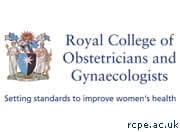A major medical group has been accused of ‘perpetuating the myth’ that abortion has few physical or psychological consequences for women.
The criticism of the Royal College of Obstetricians and Gynaecologists (RCOG) comes as it conducts a review of its abortion guidance.
Dr Peter Saunders, chief executive of the Christian Medical Fellowship, has questioned the transparency of the review and warned that those charged with revising the controversial document are “almost exclusively ‘pro-choice'”.
Abortion
Writing on his blog Dr Saunders questioned the guidance’s advice regarding the link between mental health and abortion.
The guidance, entitled The Care of Women Requesting Induced Abortion, recommends that women seeking an abortion should be told that most of the women who have an abortion do not experience adverse psychological effects.
But Dr Saunders cast doubt on the panel’s capacity to make such a decision.
Psychiatrists
He said: “There are, as before, no psychiatrists on the panel, which is rather odd given that the Royal College of Psychiatrists has recently changed its position on the link between abortion and mental illness (it now acknowledges one) and is presently in the process of reviewing the scientific literature again.”
The guidance makes a number of other recommendations regarding the relative safety of abortion, but Dr Saunders warned that these were in “hugely controversial” areas.
Dr Saunders added: “The RCOG has been heavily criticised in the past for underplaying the physical and psychological consequences of abortion for women and this new document appears to continue in that vein.”
Objectively
He also criticised the make-up of the ‘multi-professional group’ charged with reviewing the RCOG’s guidance.
This group includes representatives from the nation’s two largest abortion providers BPAS and Marie Stopes International. It also includes representatives from the RCOG, the RCOG’s Faculty of Sexual and Reproductive Health and the Royal College of General Practitioners.
But Dr Saunders cautioned: “Asking this group to comment objectively and honestly about the physical and psychological consequences of abortion for women is like asking Philip Morris or BAT to review the health consequences of smoking or Macdonald’s to outline the adverse effects of fast food consumption.
Vested
“There are simply too many financial and ideological vested interests at stake that threaten a fair assessment.”
The review was due to close last Friday, less than one month after it was launched, but following pressure in Parliament the deadline has been extended until 25 February.
Last November a group of consultant psychiatrists wrote to a national newspaper warning that women who seek a termination should be “fully informed” about the possible consequences.
In the letter the medics highlighted a recent poll which showed the idea of “informed consent” enjoys massive public support.
Informed
They also pointed out that the Royal College of Psychiatrists (RCP) has recommended that informed consent, including information on possible mental and physical risks to the woman, should be part of good practice in abortion provision.
The signatories of the letter also mention a major 30-year study which showed that women who had abortions had higher rates of mental disorder than their peers.
Professor Andrew Sims, a past president of the RCP, is among those who signed the letter to The Daily Telegraph.
Warned
In 2008 the RCP warned that having an abortion could damage a woman’s mental health and said that women should be told the risks before proceeding.
This move represented a significant shift in policy for the RCP. In 1994 it said that the mental health risks associated with abortion were far less than those incurred when an unwanted pregnancy was carried to term.

